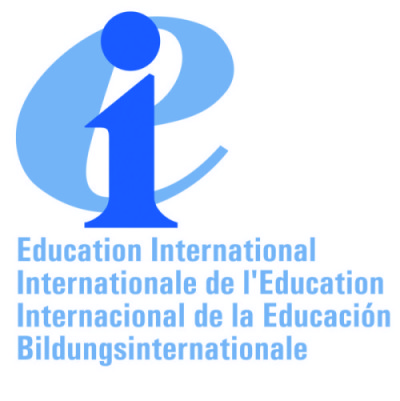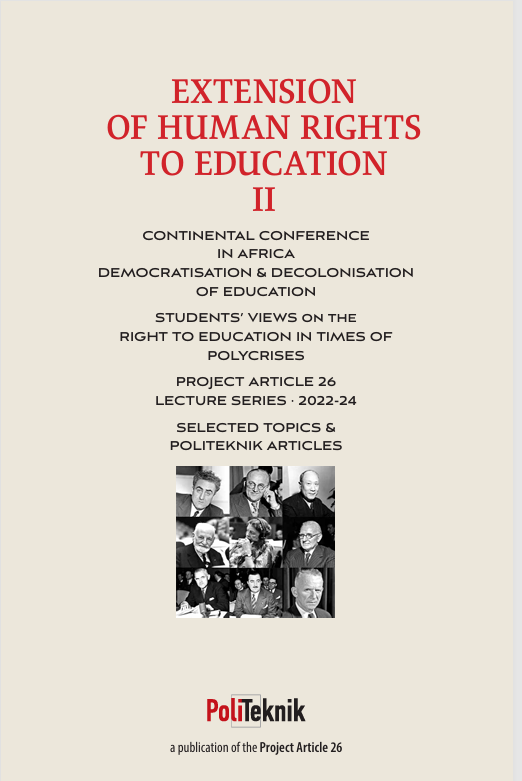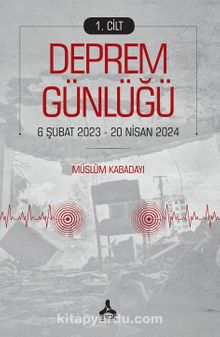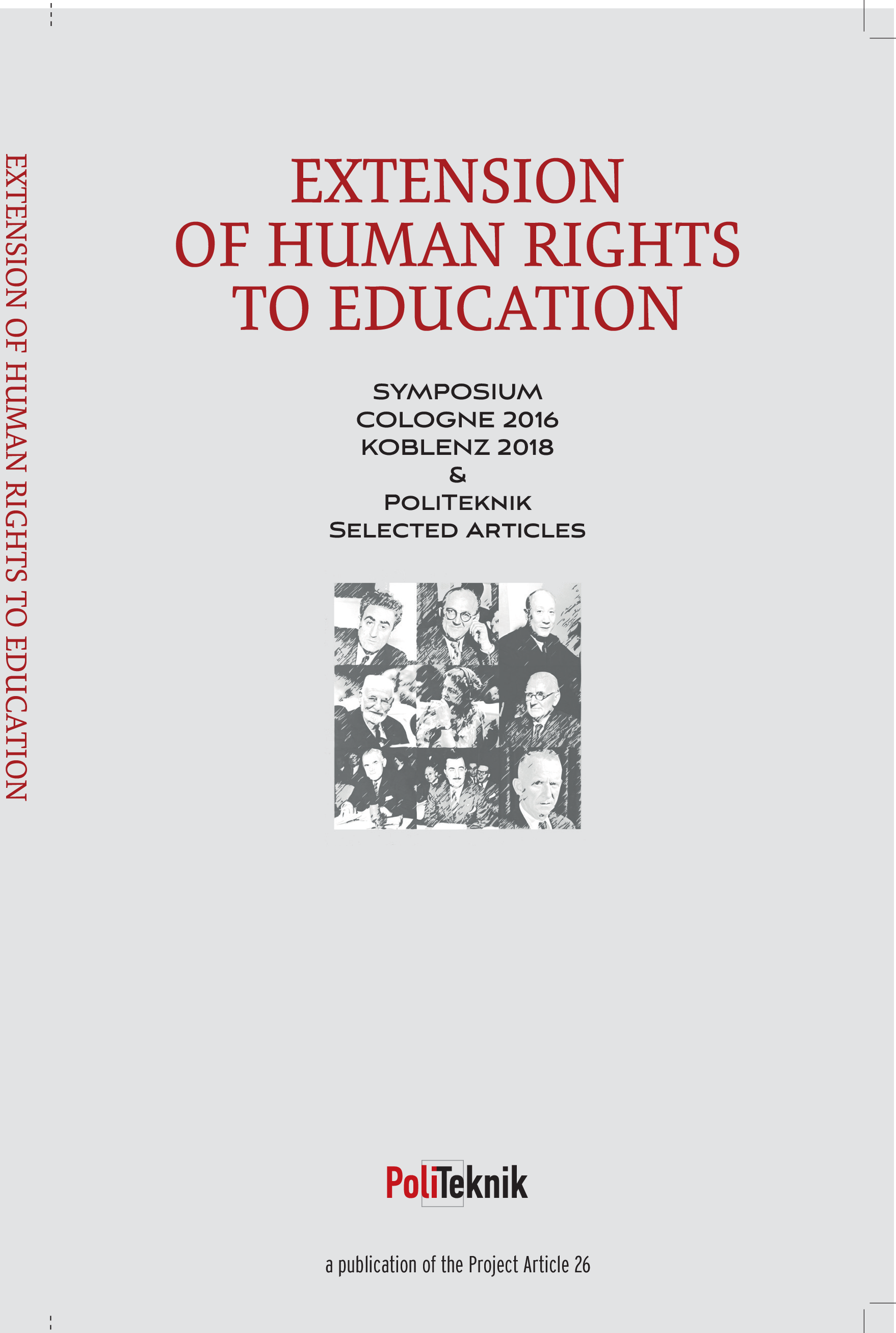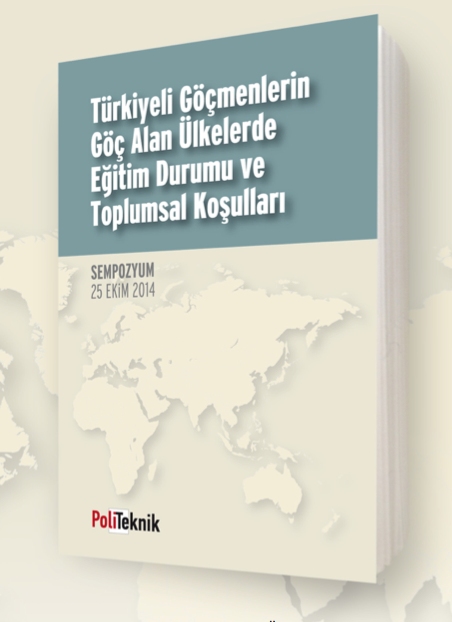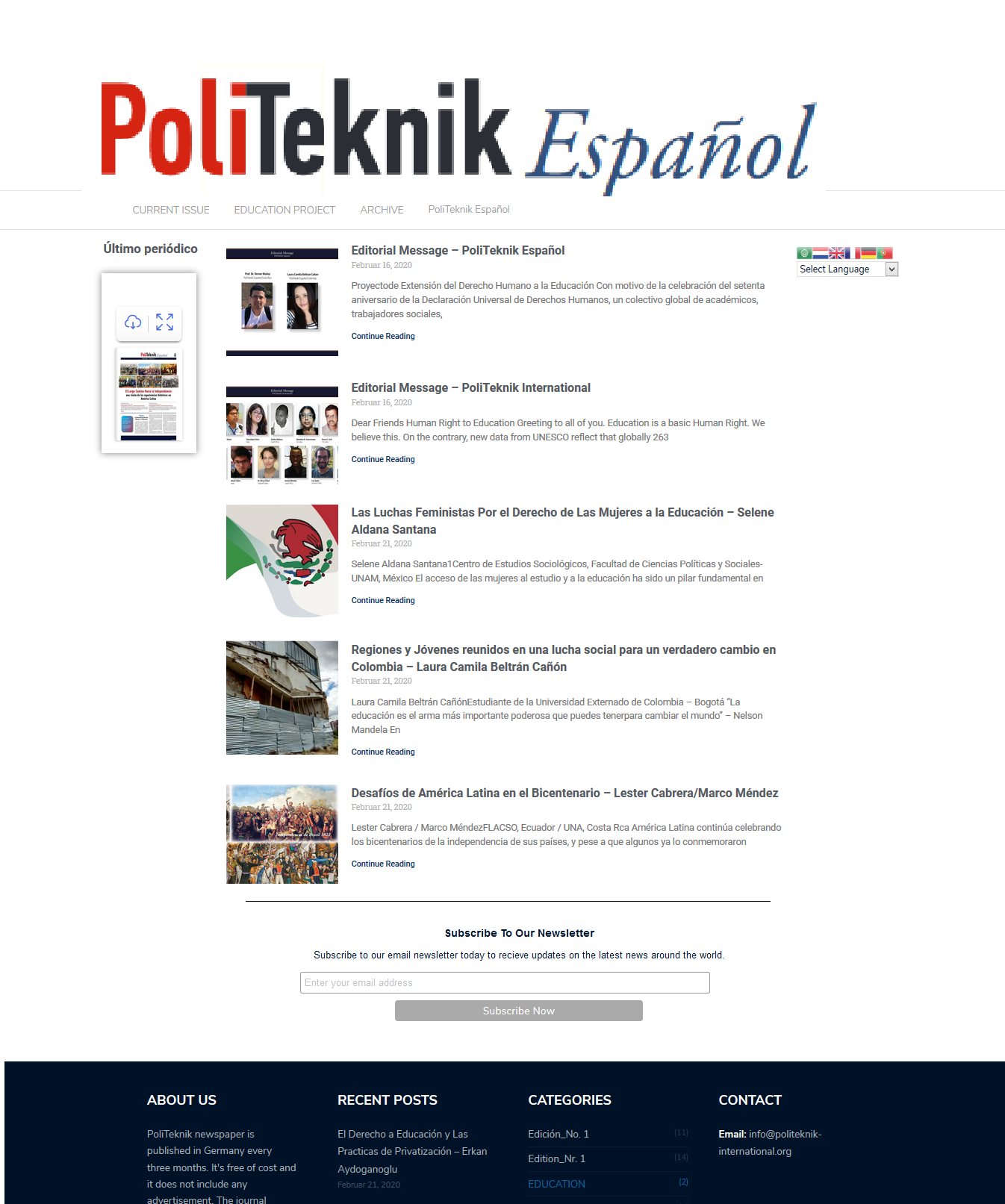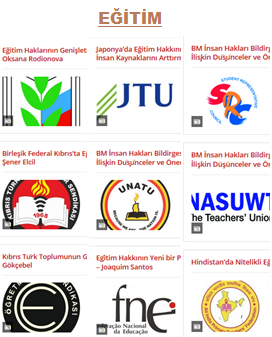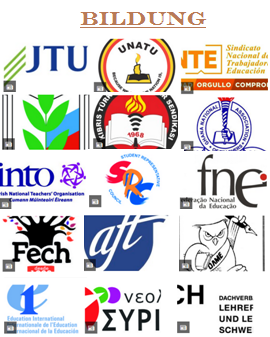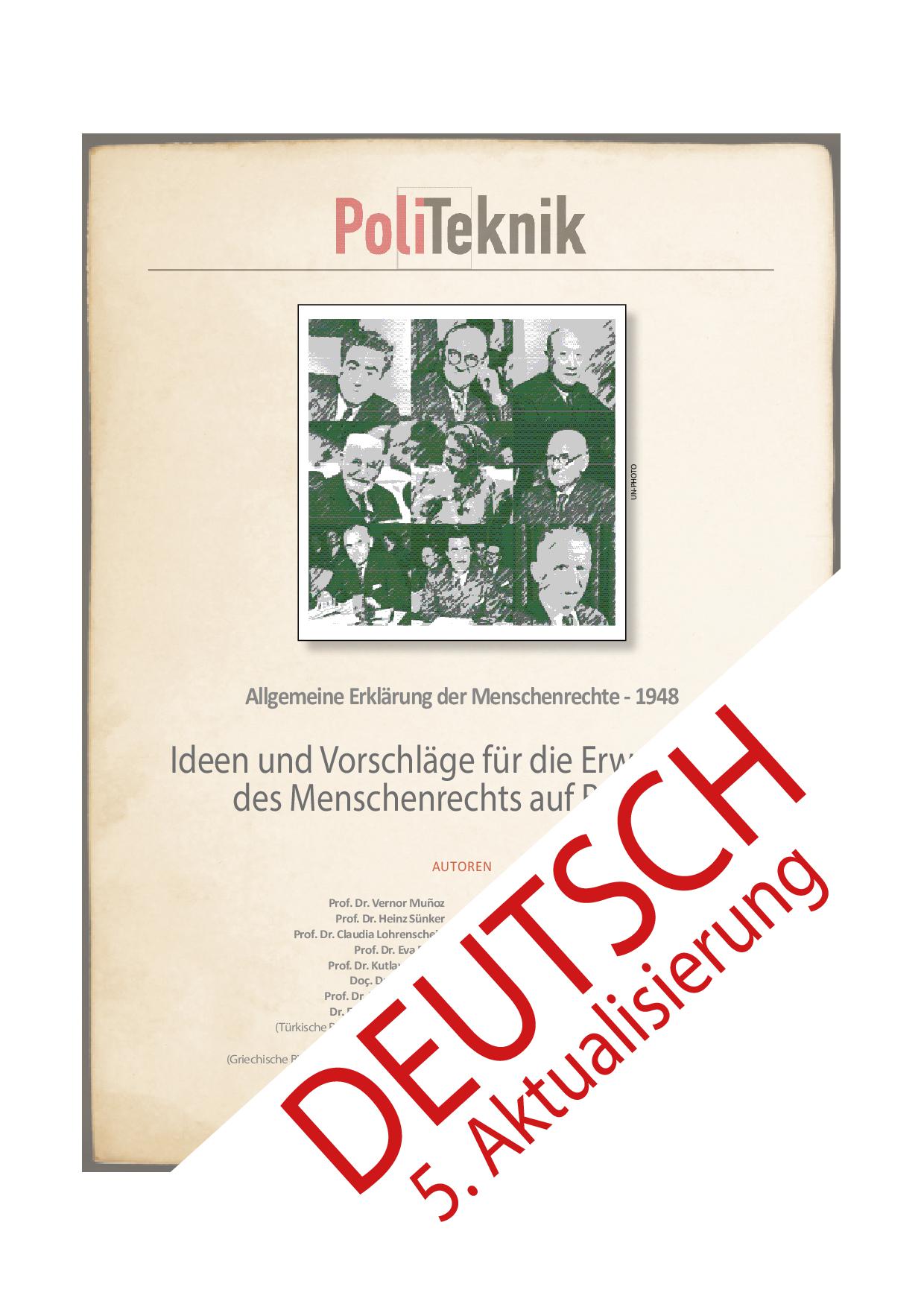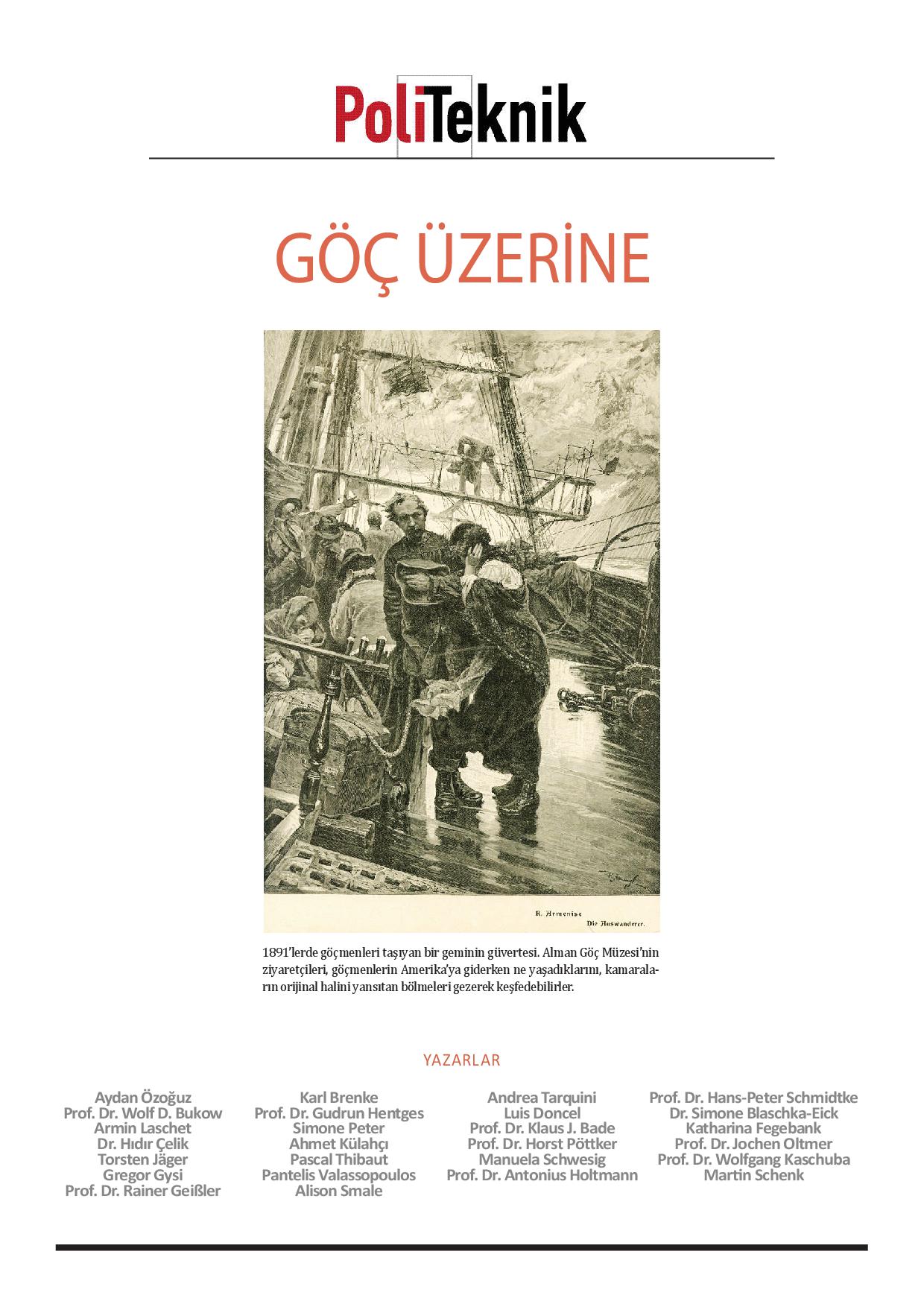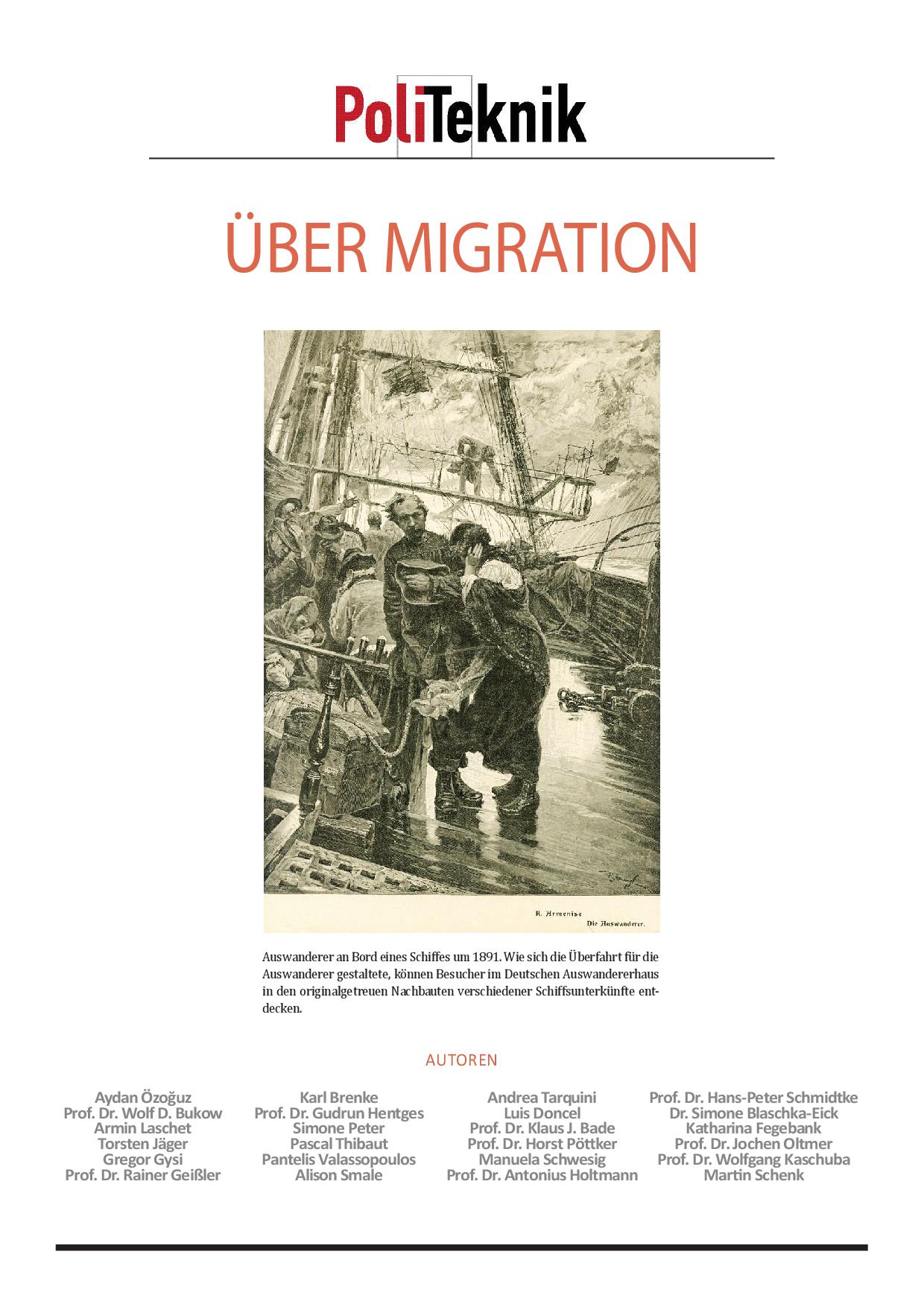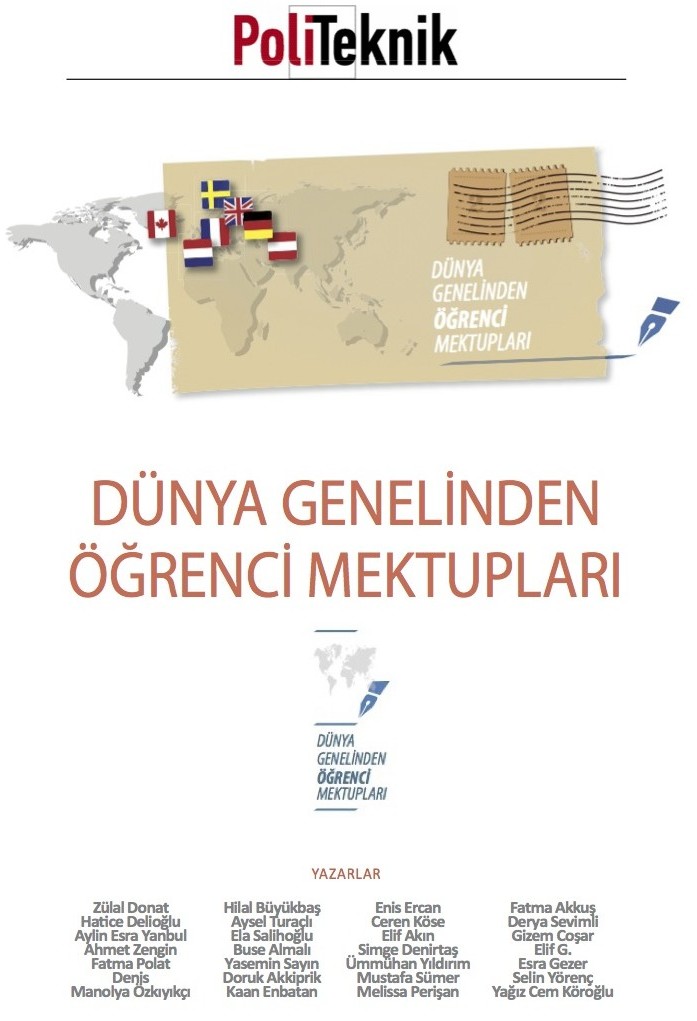Susan Hopgood
President, Education International
At perhaps no other time since the right to education was enshrined in the in the 1948 United Nations declaration of Human Rights has it needed a renewed pledge in light of today’s increasingly complex global reality. Although great strides have been made to increase access to education during the last 15 years, 60 million children remain out of school. In spite of education being an inalienable human right and a public good, across the world this right continues to be denied due to a combination of under-financing of education, the impacts of inequalities in accessing and completing education and above all, a lack of political commitment and will.
The right to education is being increasingly tested as we bear witness to growing inequality, continuing gender disparity, and the influx of people seeking refuge from conflicts raging across the globe. The mass migrations fleeing places like Syria and Iraq have exposed the immense challenges facing overburdened social systems both in developed and developing nations required to guarantee education.
As millions flee their homes in unliveable situations, while others face daunting obstructions to equity and equality, we need to move towards a rights-based approach to education, which relies on political will and commitment reflected through the integration of education rights in national constitutions, legislation and policies, the provision of sufficient financing and resources, an adequate regulatory and monitoring framework to ensure accountability, and the comprehensive targeting of inequalities in education.
However, the right to education goes beyond access, retention and completion in education. A rights-based approach necessitates a holistic and multidimensional understanding of education, as one that provides people with the critical knowledge, skills, values and attitudes that are needed to question, conceptualise and solve problems that occur both locally and globally, and actively contribute to the democratic and sustainable development of societies.
Much of the inequality and lack of access that prevents the vast majority of those 60 million children from realising their right to education too often goes unnoticed. It is only when crisis strikes, however, that this right to education, or rather lack of it, moves into clear focus for all to see.
Recognising education as a fundamental human right and a public good necessitates a rights-based approach to education within the new sustainable development agenda and framework for the next 15 years. The goal to “Ensure inclusive and equitable quality education and promote lifelong learning opportunities for all” moves education closer to that approach, but it is not enough. Rights-based must include rights to education, rights in education and rights through education, and has implications for all aspects and levels of policy-making, such as budgeting, provisioning, management, curriculum and all educational processes.
The right to education thus goes well beyond access, retention and completion, as it includes the right to an education that is “directed to the full development of the human personality and the sense of its dignity, and shall strengthen the respect for human rights and fundamental freedoms”[1]. A commitment to the right to education requires measures designed to ensure that the most marginalised children and young people have access to an education of the same quality as the least marginalised.
Furthermore, the right to education is inextricably linked to teachers’ rights because it requires qualified and motivated teachers who are able to work in adequate conditions, have access to appropriate tools and resources, and enjoy fair working conditions and adequate remuneration. Teachers must also be adequately trained to the right standards, exercise self-efficacy and pedagogical leadership and be given the opportunity to benefit from continuous professional development, so that they are able to deliver quality education.
These are only a few examples of why teachers’ rights must be recognised and protected, including the right to decent work, and the right to freedom of association and collective bargaining.
With the UN education Sustainable Development Goal (SDG) moving education beyond a right by defining what is required for quality learning and teaching, we have collectively strengthened the right. However, the right of every child to quality education continues to be undermined by a number of challenges and threats, including: poor governance and a failure to deliver on commitments as reflected in the continued underfinancing of education and in recent years through austerity measures; an increased promotion of education markets and private-sector provision and participation in education that threaten to exacerbate inequalities; and a narrow interpretation of education quality increasingly equated to measurable learning outcomes.
In too many developing countries, the growth of for-profit, fee-paying schools targeted at low-income households only further increase social inequality. This is why EI has launched a major campaign to counter the privatisation and commercialisation in and of public education in order to strengthen the argument for a rights-based approach to education.
The full achievement of the right to education implies equity. Allowing for-profit schools to fill the void where public education is absent only helps accentuate unequal educational outcomes that often reflect deeper inequalities in society that governments and international organisations must address to ensure improved access to high quality education.
Another threat to the right of education is the increasing attacks on the teaching profession itself. Policy reforms aimed at improving education, such as performance pay, increased evaluation and standardised testing, have not only led to shrinking professional space and autonomy, but have greatly contributed to high-stress learning conditions and an increase in attrition from the profession. [2]
Behind many of these issues to strengthen the right to education can be traced to the lack of political will and commitment to ensure sufficient funding and resources. As a human right, education should be treated as a public good and provided fee-free at the point of delivery and on a not-for-profit basis, which has been reaffirmed in the new SDGs. States have the primary responsibility to ensure that education is publicly financed from equitable and progressive taxation. Universal and equitable access requires that public financing is designed to ensure that all households have access to education at all levels.
By addressing the challenge of equity and financing and learning the lessons from the implementation of the EFA goals and MDGs, and from earlier efforts to achieve global education goals are going to help strengthen the education SDG.
In order to realise the new goal, targets and indicators, it is imperative that we recognise that the right to quality education is dependent on the political commitment to finance public education systems, the provision of a broad-based curriculum, safe learning environments with adequate infrastructure, facilities and resources, and a qualified and well-supported teaching force with their right to decent work protected.
Referring back to the global economic crisis, which some have blamed on the failure of the educational system to provide skilled workers, has generally given rise to a culture of efficiency and accountability focused on the performance of the education system, and have been used to justify a number of policy measures and budget cuts that have ultimately weakened the provision of the right to education. Fast forward to today, the refugee crisis stands as a prime example of why education has been recognised as a human right. The conflicts which have led to mass migration should serve as a warning to the world of what happens when the provision to education is neglected. This situation urges governments to display political will and commitment to ensure that a rights-based approach is taken to make sure that education is a fundamental right and pubic good and that quality education is available for all in order to not only achieve the 2030 global agenda, but a better world.
[1] International Covenant on Economic, Social and Cultural Rights (ICESC), 1966, article 13. http://www.ohchr.org/EN/ProfessionalInterest/Pages/CESCR.aspx
[2] Macbeath, J. (2012). The Future of the Teaching Profession. Brussels: Education International. See also: Tatto, M.T. (ed.) (2009). Reforming Teaching Globally. London: Symposium for discussions on the effects of education reforms on teacher education, development and work.

